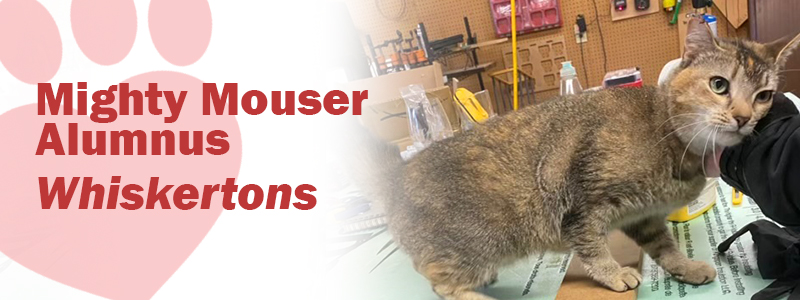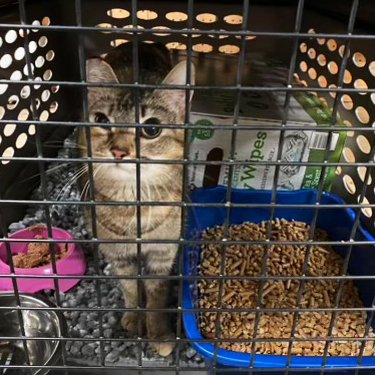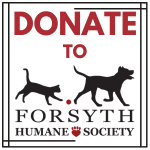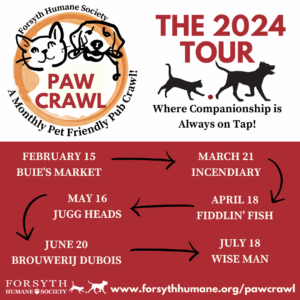Mighty Mousers
Our community cat program, Mighty Mousers, is a way to find homes for cats who aren’t interested in a typical home life. FHS finds itself caring for feral and outdoor cats, who thrive living as “working cats” in barns, warehouses, garages, stables, etc.

What they need
Mighty Mouser cats are still going to a home; they need shelter, food, water, and veterinary care the same as other animals adopted from Forsyth Humane Society.
Mighty Mousers who are adopted need to be kept up to date on their rabies vaccines in accordance with NC law.
Cats are social animals, and many tend to feel safer when around other cats, consider getting more than one.

It’s recommended to keep the new cat(s) in an enclosed area for a few weeks with their new food and water sources, to establish that the area is safe and their new home once they have the ability to roam. If there isn’t an easy space to enclose, a dog crate can work.
Pictured, Whiskertons ready to head to his new home.
More program information below.
Cats on your property?
It has been found that simply removing cats from a property only opens up that territory for another cat (or cats) to move in. TNVR, Trap Neuter Vaccinate Return, has been found to be more effective. The territory stays occupied, the occupant isn’t breading or spreading diseases, and neutering solves some of the behavioral issues that lead some people to not want cats on their property in the first place.
Will TNVR cats harm bird populations?
Some people worry that cat return programs and working cat programs can harm bird populations. Firstly, studies show that the overwhelming cause of bird population decline is human causes such as development, habitat removal, pollution, and so on. Secondly, community cats or working cats are cats that were already out and about to begin with; additional cats are not being added to the cat population.
Community cats and working cats will often go after mice, moles, and other small prey that can attract snakes. With that prey gone, snakes are less interested in the territory occupied by a cat. Most importantly though, cats are opportunistic eaters. A cat provided with a regular food source will not be hunting as much as one without.
For more information on Feral Cats, Community Cats, TNVR, and Working Cats, check out Best Friends Animal Society and Burlington Animal Services as well as this handy info sheet from Best Friends.



